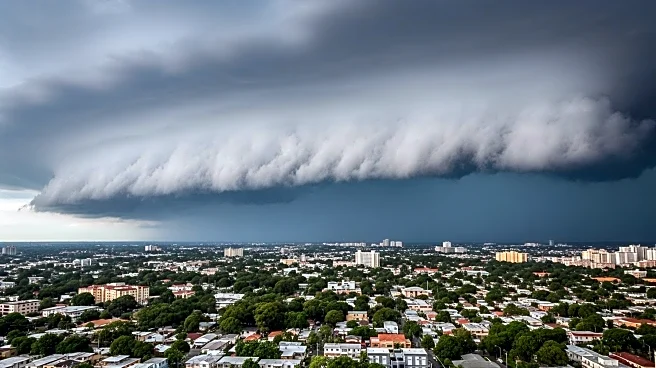What is the story about?
What's Happening?
The ongoing hurricane season continues to highlight the disproportionate impact of severe weather events on minority communities in the United States. Hurricanes such as Katrina, Harvey, and Maria have caused significant damage and loss of life, with minority populations often bearing the brunt of the consequences. These communities face heightened risks due to environmental hazards and socioeconomic disparities, which are exacerbated by climate change. The National Institutes of Health has noted that communities of color are more vulnerable to health effects associated with climate-related impacts due to systematic disinvestment in housing, education, and food access.
Why It's Important?
The disproportionate impact of hurricanes on minority communities underscores the need for equitable disaster response and recovery efforts. These communities often lack the resources to effectively prepare for and recover from severe weather events, leading to long-term socioeconomic challenges. Addressing these disparities is crucial for ensuring that all populations can withstand and recover from natural disasters. The findings call for policy changes that prioritize the needs of vulnerable communities and promote resilience through improved infrastructure and access to resources.
What's Next?
Efforts to address the inequities faced by minority communities in the wake of hurricanes may involve increased federal and state support for disaster preparedness and recovery programs. Advocacy groups are likely to push for policy reforms that ensure equitable distribution of relief funds and resources. Additionally, there may be a focus on enhancing community resilience through investments in infrastructure and sustainable energy solutions. The ongoing dialogue around climate change and its impacts on vulnerable populations is expected to drive further research and policy initiatives.
Beyond the Headlines
The challenges faced by minority communities during hurricane seasons reflect broader issues of environmental justice and systemic inequality. These events highlight the need for comprehensive approaches to disaster management that consider the social and economic factors contributing to vulnerability. The intersection of climate change and racial disparities calls for a reevaluation of current policies and practices to ensure that all communities can thrive in the face of environmental challenges.















